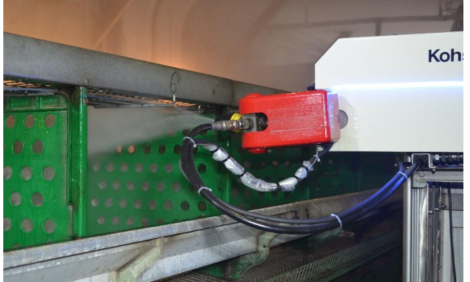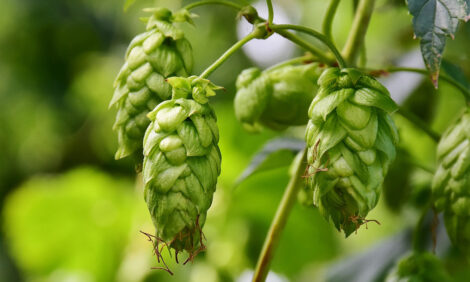



IBV Hatchery Vaccination and its Effects on Field Boost in Broilers
Hatchery spray cabinet administration of Arkansas vaccine produces less then desirable protection against infectious bronchitis virus (IBV), according to new reseach from the University of Georgia.Infectious bronchitis (IB) is a highly contagious upper-respiratory tract disease in chickens that is extremely difficult to control because different types of the virus causing the disease do not cross-protect.
In a recent study, Dr Mark W. Jackwood and his team at the University of Georgia examined infectious bronchitis virus (IBV) field boost vaccination in commercial broilers and found that the number of birds positive for vaccine virus followed a parabolic shaped curve that peaked at 14 days post-vaccination or resembled a sinusoidal type wave with a frequency of about two weeks. In addition, the vaccine type isolated from broilers was always Arkansas, and birds were not completely protected against Arkansas challenge.
The hypothesis for their latest research, sponsored by the US Poultry & Egg Association, was that inadequate immune system priming through the administration of IBV vaccines in the hatchery was occurring.
The objective of this project was better to understand the dynamics of hatchery vaccination for IBV as it relates to persistence of Arkansas type viruses in broilers.
After examining baseline coverage for different commercial vaccines in one-day old chicks, the Georgia group found that:
- No interference is occurring between other types of IBV vaccine and Arkansas vaccine. In fact, they found that administration of a different type of IBV vaccine with Arkansas vaccine enhances protection against Arkansas.
- Arkansas vaccine was not efficacious in day–old broiler chicks when using a hatchery spray cabinet.
- Eye drop administration of Arkansas vaccine appears to be superior to hatchery spray cabinet administration with regard to the level of vaccine in the birds and the number of birds infected.
These findings are extremely important, explained Dr Jackwood, because it emerged that hatchery spray cabinet administration of Arkansas vaccine produces less then desirable protection and can apparently lead to persistence of that vaccine in broilers.
The short-term benefit is that protection against Arkansas can be improved by giving another IBV vaccine type simultaneously. The longer–term benefit will be from reevaluating the methodology used to administer Arkansas vaccine with a hatchery spray cabinet to improve efficacy.
Further Reading
| - | Find out more information on infectious bronchitis by clicking here. |
March 2012









